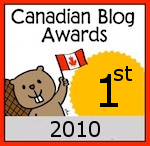
Venezuelan president Nicolás Maduro addresses an anti-paramilitarism rally in Caracas.
A. Because that’s where all the crime is coming in from. And no less a person than the first vice-president of Venezuela, and president of the national assembly, is there to make sure everybody understands:
The president of the Venezuelan national assembly, Diosdado Cabello, reiterated on Tuesday that Venezuela’s demand is that the government of Colombia concern itself with its border, as an indispensable condition for lifting the closure in the Venezuelan border state of Táchira.
“We must demand that the Colombian government look after its border,” Cabello announced from Táchira, recounting that whereas the Venezuelan government has more than 3,000 members of the Bolivarian National Guard posted on the 45-kilometre stretch of border, Colombia barely has one police post to guard the zone.
According to Cabello, this unequal situation has permitted the proliferation of crimes such as food smuggling, assassinations, narcotrafficking, and paramilitarism, which affect the entire population of the zone.
Cabello denounced that the situation is getting even worse with the passage of laws in Colombia which legalize financial speculation against the Venezuelan bolivar, and create heavy distortions in the national economy.
“The father of Robert Serra’s murderer has 22 currency exchanges along the border,” Cabello said, referring to the homicide of the young parliamentarian, a crime which was organized and financed by the ex-councilman of Cúcuta, Julio Vélez.
Cabello stressed that the Venezuelan government is fighting against crimes along the border, and not against the more than five million Colombians who are living in Venezuela. “If you are working, keep on working. This is your country. We’re not going to throw anyone out.”
He added that in the years of the Bolivarian Revolution, more than 60,000 Colombians took part in Mission Ribas (a free educational program), 11,000 in Mission Miracle (a free medical program for persons with eye problems), and have received about 3% of the homes built as part of the “Great Mission Venezuelan Homes”.
“The only things we don’t want are paramilitarism, assassinations, smuggling and hoarding*,” Cabello added.
Cabello lamented that the Venezuelan right has given its absolute support to the Colombian oligarchy, which he holds responsible for the historic abandonment of the people who live in the border zone.
“Now they say they’re going to give them homes and jobs. Why didn’t they do that in all these years?” Cabello asked, comparing the government of Juan Manuel Santos with that of his predecessor, Álvaro Uribe: “There is no difference.”
“We’re sad that the two governments are so alike,” he added, stating that the Venezuelan government will stay in the border area to re-establish peace and guarantee the security of both countries.
Translation mine.
So we can see how political assassinations go hand in hand with made-in-Colombia paramilitarism, and how the Colombian oligarchy — and its so-called government — has done nothing about it, except to essentially aid and abet it. Paramilitarism, in particular, is Álvaro “El Narco” Uribe’s baby; ostensibly aimed at fighting the FARC guerrillas, it’s really all about killing and repressing the local peasant farmers, trafficking cocaine, assassinating leftist politicians on both sides of the border, and then pointing the finger at Venezuela and blaming the ghost of Chávez for all the home-grown trouble.
Of special note is the fact that Robert Serra’s killer comes from ill-gotten money: His dad has 22 “currency exchanges”, all in the Colombian border region, distorting the Venezuelan bolivar! How is this even legal? It shouldn’t be, and I suspect that in Venezuela it isn’t. But in Colombia? Well, that’s quite another story. They hate the bolivar and love the Yankee dollar, there. And corruption is the order of the day in that land, where leftist politicians are constantly being thrown out of office — and killed if they don’t get the oligarchs’ fascist message. Just look at the persecution faced by Piedad Córdoba and Gustavo Petro, among others. If any of them ever arrive at full power, watch out. That’s when the paramilitaries and terrorists swing into action.
And they’ve been plenty busy in Venezuela over the past year, with not only the Serra assassination, but also the gruesome murder of Liana Hergueta, an opposition member who apparently knew (and protested) too much. They’re always to be found in every opposition “protest” that turns into a bloodbath, and they’re not at all shy of killing anyone, including members of their own so-called team. And over the past year, they’ve been trying and failing to foment one putsch after another.
Let’s hope they keep failing.
*Cabello uses the word bachaqueo, a uniquely Venezuelan slang term, to describe a process of hoarding and speculating on price-controlled goods, such as food and other household staples. The intent is to create political instability by way of food insecurity, as well as line the pockets of those who already have way too much. It’s an especially common crime in the border regions. Profiteering, like currency speculation, is an opposition/Colombian paramilitary specialty. And the desired effect is to undermine the Bolivarian Revolution and the PSUV government at all levels.



